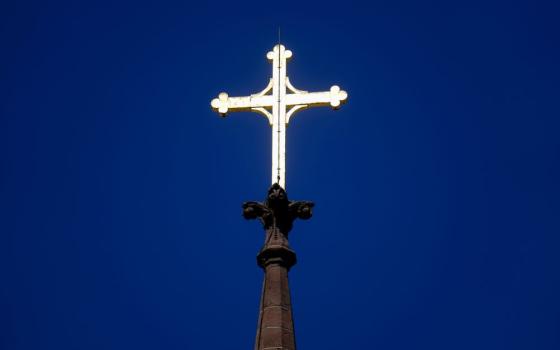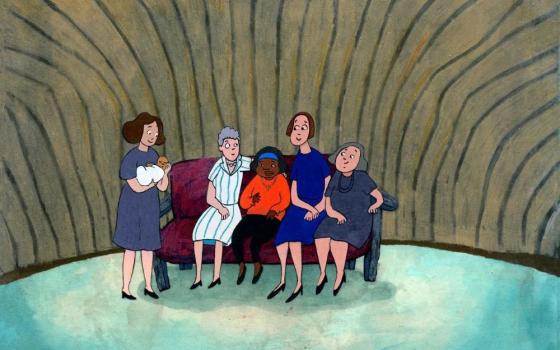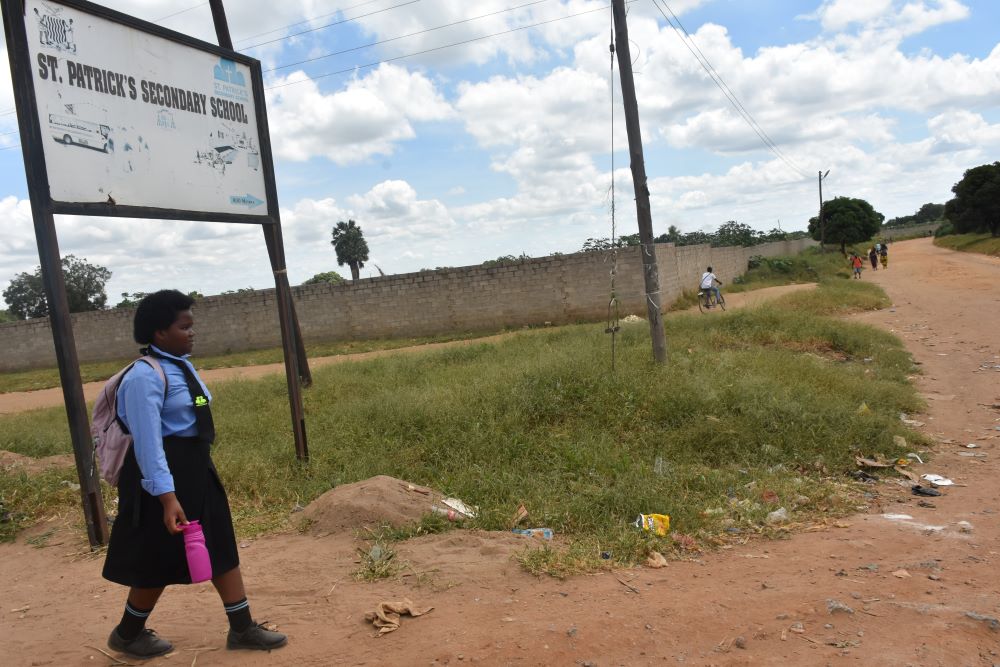
A girl walks to St. Patrick's Secondary School to attend classes. More than 100 vulnerable girls at St. Patrick's Secondary School have participated in the Bakhita Partnership for Education, overcoming financial hardships and societal challenges to stay in school. (Derrick Silimina)
Editor's note: This story is part of Global Sisters Report's yearlong series, "Out of the Shadows: Confronting Violence Against Women," which will focus on the ways Catholic sisters are responding to this global phenomenon.
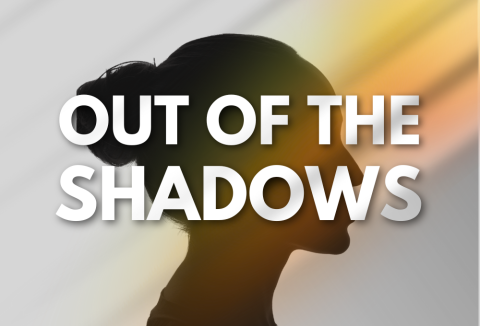
(GSR logo/Olivia Bardo)
One 18-year-old Zambian girl said she was raised in a home shaped by her grandfather's sexual abuse, which led her down a bleak path.
Growing up in a challenging environment due to her family's financial constraints, the girl, who asked that her name not be used to protect her identity, turned to her wealthy grandmother to help support her education. At first, this seemed advantageous, but it came with significant psychological trauma.
"Things turned sour after her husband sexually abused me," the girl told Global Sisters Report.
"The horrific experience affected my academic performance," she said. "My class teacher realized that I was traumatized, forcing the school authorities at St. Patrick's school to rescue me to a safe haven where I had access to further academic support."
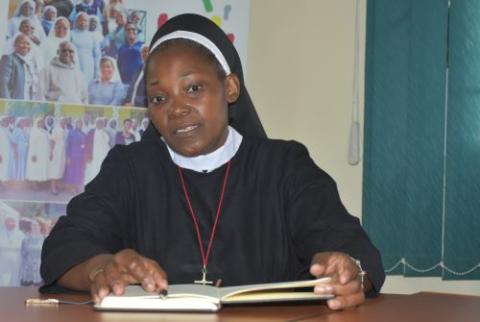
Sr. Bertha Chisanga, project coordinator for the Bakhita Partnership for Education, sits in her Zambia Association of Sisterhoods office in Lusaka, Zambia. (Derrick Silimina)
The girl's story highlights the need for a supportive framework that addresses not only educational needs but also emotional and mental health support for young people navigating abusive homes.
Following the COVID-19 pandemic's impact on education, many girls in the southern African country dropped out of school. Increased teenage pregnancy, child marriages and financial struggles exacerbated existing vulnerabilities in communities. That led to a situation where many families could no longer afford to keep their girls in school.
In Mazabuka District, with schools closed for extended periods, some girls faced pressure to enter into early marriages. Meanwhile, others sought odd jobs at the Nakambala Sugar Estates to earn money to help their families.
Luse Hamoonga's parents lost their jobs after COVID-19 and could not afford her tuition.
"After schools reopened, I was on the verge of being kicked out," said Hamoonga, a grade 12 student at Mazabuka's St. Patrick's Secondary School, one of the schools the Bakhita Partnership for Education supports.
Hamoonga said that if her teacher had not recommended her to the Bakhita Partnership, she would have dropped out and married at a young age. Her dream of becoming a medical doctor would have been in vain.
Today, Hamoonga is among hundreds of girls who are beneficiaries of the "Bakhita project," which is managed by the Missionary Sisters of the Precious Blood.
Since its inception in 2020, the project has served dozens of schools, including Kasisi Girls Secondary School in Lusaka District, Chikuni Girls Secondary School in Monze District, St. Joseph's Girls Secondary School - Chivuna and St. Atanazio Day Secondary School in Chipata, among others.
With support from the Conrad N. Hilton Foundation, the Jesuit Justice and Ecology Network Africa, and the Zambia Association of Sisterhoods, the sisters are transforming the lives of vulnerable girls in Zambia by offering them a second chance at education and empowering them to follow their dreams. (The Hilton Foundation is the primary funder of Global Sisters Report.)
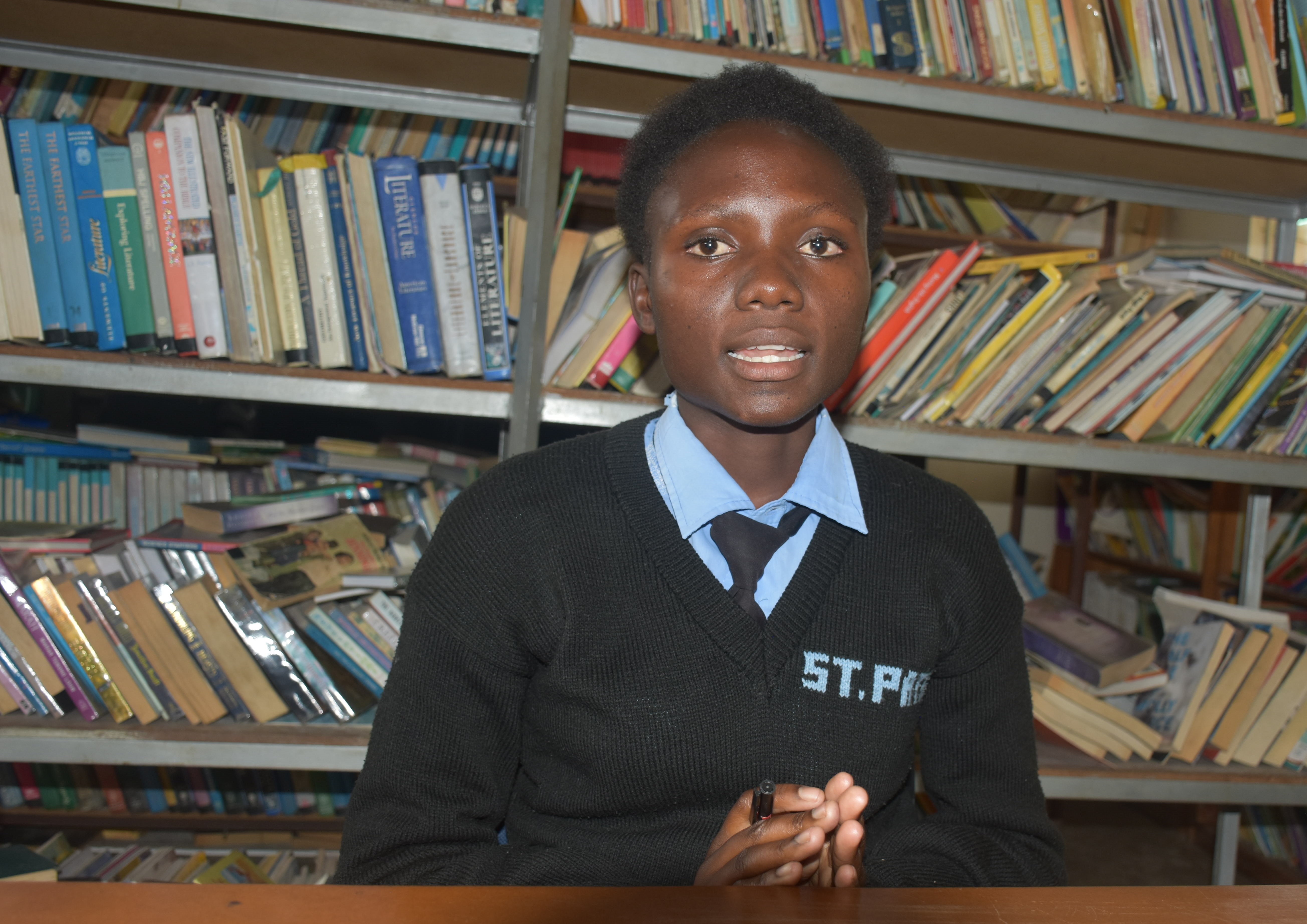
Chanda Musonda, a participant in the Bakhita Partnership for Education at St. Patrick's Secondary School in Mazabuka District, Zambia, will graduate from high school this year. (Derrick Silimina)
"During the COVID-19 lockdown, the project answered the calls of vulnerable girls who dropped out of school as their parents and guardians became jobless," said Sr. Bertha Chisanga, the partnership's project coordinator.
The project's namesake, St. Josephine Bakhita, is a symbol of resilience and hope for victims of modern slavery and human trafficking. Chisanga, a Missionary Sister of the Precious Blood, said the project works to ensure that girls receive quality basic education, prioritizing Zambia, Kenya, Uganda, Malawi and Tanzania.
"We also offer psychosocial counseling to the girls coming from broken homes due to high divorce cases, economic hardships, and sexual and gender-based violence prevailing in their communities," Chisanga said.
Located in the heart of Mazabuka town, about 125 kilometers (78 miles) south of Zambia's capital, Lusaka, St. Patrick's Secondary School started as a community school in 1995 and has evolved into a co-educational facility.
Chisanga said that more than 100 vulnerable girls at St. Patrick's Secondary School have benefited from the program, overcoming financial hardships and societal challenges. However, the project does not provide assistance for post-secondary education, leaving many girls at home after high school.
"The Bakhita project is a game changer for vulnerable girls, [and] their school performance has been impressive," St. Patrick's Secondary School head teacher Harrison Banda told GSR.
Advertisement
Chanda Musonda described the emotional impact of her academic journey at St. Patrick's, particularly the trauma of dealing with a broken home after her parents divorced.
Musonda, 17, was inspired by the resilience and fortitude of her mother, a domestic worker who struggled to pay her tuition fees. Her mother's employer offered to help, but he couldn't sustain all her academic needs.
Thanks to the Bakhita Partnership, Musonda is about to complete her high school education this year.
"I am so grateful to the sisters' initiative and the academic support I [have] received," Musonda said. "I hope the project will continue to help many girls and [include] boys in similar situations. I pray the scholarship is [also] extended to the tertiary level, a move that will transform many lives."




